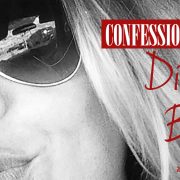8 ways a writing coach helps you get killer results
Imagine Jane, slaving over a blank canvas every day, by herself. Forgoing meals and sleep in the name of her craft. Barely getting by on whatever meager income her paintings bring in.
It’s all for my art, she says.
The epitome of the starving artist, right? Well that sucks.
And too many writers are doing the same thing.
You’re broke, bored, confused, scared, and often overwhelmed by how best to tell your stories. You stare at the screen every day, unsure of you have anything worthwhile to say, how to say it, and if anyone will read it anyway.
Now let’s go back to Jane for a minute. What if Pablo Picasso materialized at her door and said, “Hey, I’ve been looking for someone to talk painting with. You available?”
I’m betting two incredibly cool things would happen. First, his skill and style would rub off on her. It’s inevitable. Second, she wouldn’t be doing it alone anymore. Having someone to bounce ideas off of, talk through struggles and share insecurities is invaluable.
In the same way, writers need support. They need to talk to people who have done what they’re trying to do. Someone who can give them advice and feedback, and keep them on track.
Hence, the writing coach. (And even if you don’t think a coach is for you, you can implement these ideas to strengthen your writing and your psyche. No joke.)
Writing coaches help you get shit done. Here’s how.
A realistic look at your writing life
If you don’t know what you want your writing life to look like, how can you go after it? Do you want to write full-time or part-time? Are you a romance author or a how-to writer? How much time do you want to spend in front of your computer every day? Map it out. Be specific. And make it doable.
Writing coaches talk with you about how to create a realistic plan. One you’ll look forward to every day and that will help you accomplish your writing goals. For example, as a first-time author, it might not be awesome to plan on writing six novels this year.
A plan
Jane shows up at her studio every day and paints. It still won’t make her paintings sell for millions. It’s true, the more you write, the better you become. But your progress leaps ahead when you have someone guiding you on where and how to improve.
You need a plan to get you where you want to be. A writing coach helps you create a personalized, strategic plan. And thanks to her decades of writing experience, your plan is highly likely to get you where you want to go.
Execution
How will you get there without a deadline? Sure, we’re all going to write that book. When?
A good writing coach helps you quantify what your writing success looks like AND helps you set goals along the way to the final product.
We don’t say, “I’m going to write a book,” and then write continuously until it’s done. We’re not machines. We need interim goals and deadlines – and rewards for meeting those.
Focus
A strategic writing plan makes multiple things happen at once: improving writing skills, writing, growing an audience, networking with other writers, developing confidence, taking time for your craft (and usually setting firm boundaries with friends and family in order to do so).
It’s easy to lose focus, get confused, feel overwhelmed and ultimately give up. Believe it or not, that happens more toward the end of a writing project than at any other time.
A writing coach keeps you on task. You’ll know what’s next, why it’s most important, and you’ll already have time scheduled for it. The best part? When you get stuck, you call her.
Accountability
A writing coach expects feedback on a regular basis.
Annoying? Absolutely.
Necessary? Absolutely.
We’re monitoring your progress. When I see you’re spending too much time editing, for example, I’ll light a fire under you to let it go and just write.
The best coaches are straightforward, will ask why you’re struggling and be proactive about moving you forward.
Rah-Rah
When was the last time something kept you up all night? Money worries? Relationship problems?
What if you had a friend you could call to talk you through it?
This is the essence of what a writing coach does. When you’re exhausted and out of creative juice, we step in, clarify and amp you up.
Sometimes it’s as simple as reminding you of everything you’ve already accomplished, simple validation. Sometimes you just need to be told what will and will not work – and why.
When we work alone – something writers do all day long – negativity can creep in. If your inner editor is the only voice you hear, you’re more likely to start believing it. That leads to procrastination, analysis paralysis and a slew of other kinds of self-sabotage.
But when someone you trust talks to you, the inner editor gets measurably quieter.
Confidence eats that tiny, doubtful voice for breakfast.
Challenge
Got a story to tell but it’s stuck in your throat? Or half-written and stuffed in a drawer?
Well, yeah. Writing can be scary as fuck. Fear is what kills the creative impulse, over and over and … over.
A writing coach helps you work through that, and forces you to get shit done.
Writing, duh.
The result of all this? Words on the page, baby. Your story. Your book. In your hands. Sent out into the world.
What writer doesn’t want that?
Excuses die at the hands of a writing coach. Period.
Your responsibility
Some people think a writing coach is responsible for the writer’s results.
Um, no.
When you work with a coach who pushes you, you become more aware of your goals, your progress, YOUR results.
Someone with experience can advise you, guide you. But the onus to make your dreams come to life is yours – and yours alone.
This usually translates to less whining and more writing.
The main focus of a writing coach is to get you through the rough patches – the places where you’ve sabotaged yourself in the past and given up. Always starting a book and never finishing? Hire a coach.
Staying on track without a coach
Your first option is a writing coach who will be there for you every step of the way. Daily contact gets results, fast.
If that’s not practical, you can still ask a friend to help keep you on track, or you can create a group.
Every writer has one friend who writes. Even if you don’t, explain it to someone, give him this post and ask him to keep you accountable. Schedule actual dates and times to check in and show your work.
The world has plenty of writing groups already. But if none are in your area, consider finding a couple of other writers and create your own group.
Meet regularly. Talk about your struggles and your progress. Read your work out loud to one another. (Nothing motivates a writer faster than the prospect of reading it out loud to other people.)
By creating deadlines and having people to check in with, we get things done. Writing is no different.
***
Need a coach? Hit me up. Want to learn more about writing like YOU? I’m polishing a new product that will teach you exactly that. Join our subscriber list (upper right-hand corner) to hear more about it and get a discount when it’s released.




I love how you write.
Back atcha, love. xo